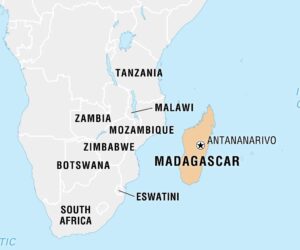Diphtheria cases and deaths have risen sharply in Somalia this year, with officials warning that vaccine shortages and major cuts in US aid are undermining efforts to contain the outbreak.
The National Institute of Health reported over 1,600 infections and 87 deaths in 2025, a steep increase from 838 cases and 56 deaths recorded in all of 2024.
Diphtheria, a preventable bacterial disease that causes fever, swollen glands, and breathing difficulties, primarily affects children. Despite improvements in Somalia’s childhood immunisation rates over the past decade, hundreds of thousands remain unvaccinated.
The consequences have been devastating for families like that of Deka Mohamed Ali, who fled fighting in central Somalia’s Ceeldheere town three months ago. All four of her children contracted diphtheria. Her 9-year-old daughter survived, but her 8-year-old son died. Two younger children remain hospitalised in Mogadishu.
“My children got sick and I just stayed at home because I did not know it was diphtheria,” Ali said, speaking from the bedside of her 3-year-old son, whose swollen throat has made swallowing nearly impossible.
Health Minister Ali Haji Adam acknowledged the government’s struggle to secure vaccines, citing both a global shortage and the funding gap created by US cuts. The United States, once Somalia’s largest humanitarian donor, slashed assistance earlier this year. Funding commitments fell to $149 million for the current fiscal year, compared with $765 million previously.
“The US aid cut terribly affected the health funds it used to provide to Somalia. Many health centres closed. Mobile vaccination teams that took vaccines to remote areas lost funding and now do not work,” Adam said.
Aid organisations warn the impact is far-reaching. Save the Children reported last month that the closure of hundreds of clinics due to donor cuts has coincided with a doubling of cases of diphtheria, measles, whooping cough, cholera and severe respiratory infections since mid-April.
A spokesperson for the US State Department defended its position, saying: “The United States continues to provide lifesaving foreign assistance in Somalia. America is the most generous nation in the world, and we urge other nations to dramatically increase their humanitarian efforts.”
Somalia’s own government has also faced criticism. Amnesty International noted that the health sector’s share of the national budget fell to 4.8% in 2024, down from 8.5% the previous year. Doctors and rights advocates argue this reflects misplaced priorities in a country where most health services rely heavily on external funding.
Officials say a national vaccination drive is being planned, but no timeline has been announced.
Melissa Enoch
Follow us on:








